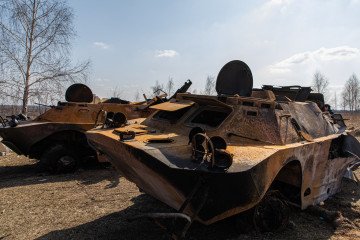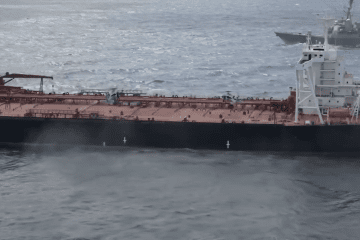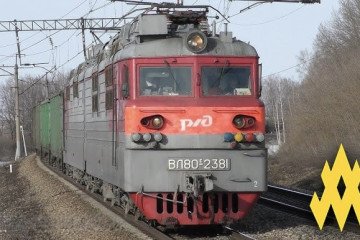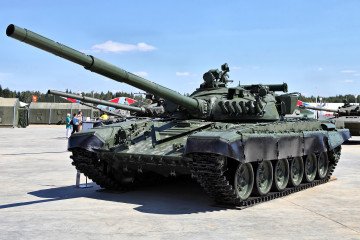Ukraine’s Azov Brigade leader urges the U.S. to reconsider a controversial weapons ban, arguing it undermines the fight against Russia.
The leader of Ukraine’s Azov Special Forces Brigade has called upon the reconsideration of the long-standing U.S. ban on providing the unit with Western weapons, in light of the fact that the latest round of U.S. military aid to Ukraine will not reach the country’s Azov Special Forces Brigade due to the ban.
Commander Denys Prokopenko, in a column for Ukrainska Pravda, cites the amendment within the U.S. Consolidated Appropriations Acts, which in effect since 2017, explicitly forbids any funds from being used to arm, train, or assist the Azov Battalion.
In 2015, Congressman John Conyers Jr., a Michigan Democrat, proposed the initial arms ban amendment, citing media reports that painted Azov as “neo-Nazi” and “fascist.”
While the Department of Defense opposed the amendment, arguing for reliance on the existing Leahy Act, the Azov-specific ban found its way into legislation in 2017 and has been renewed yearly.
It is also in this year’s defense appropriations bill.
Prokopenko, however, pushes back strongly against the narrative used to justify the ban, which is widely considered a disinformation campaign by Russia. He contends that the Leahy Act was never applied to Azov and that Western media, heavily influenced by Moscow’s propaganda machine, misrepresented the unit.
Myths about the Ukrainian Azov Brigade have been refuted on the basis of facts online and in the media. In particular, on the website AZOV CONTRA FAKE.
Prokopenko emphasizes that Azov has alson long since moved beyond its battalion designation, becoming a special forces unit in 2014 and officially integrated as the 12th Azov Special Forces Brigade of the National Guard of Ukraine in February 2023. This makes the wording in the amendment inaccurate.
“It is this amendment […] that is the reason why in 2022, during the defense of Mariupol, Azov did not have the latest Western weapons,” Prokopenko writes. He stresses Azov’s crucial role in holding back superior Russian forces in the besieged city, despite limited resources, and postulates on the potential impact of Western arms in saving lives and altering the city’s defense outcome:
“How many lives could have been saved and what would have been the results of the city’s defense if, in addition to high motivation, cohesion and professionalism, the Azovs had modern armored vehicles and artillery systems at their disposal?” he asks, referencing the 2022 Mariupol siege.
The commander further argues that even after Azov’s internationally recognized performance in 2022, the unit continues to face restrictions. Its fighters cannot participate in key Western military exercises and are denied the advanced weapons supplied to other Ukrainian units.
Prokopenko emphasizes that the ban not only hampers Azov’s combat capabilities but also harms Ukraine’s overall defense, tarnishes its international image, and humiliates its armed forces. He points out the stark contradiction in Azov fighters receiving warm welcomes in the U.S., Europe, and Israel while simultaneously being denied support. He highlights Azov’s participation in high-level discussions at the UN, Council of Europe, and Western universities, further underscoring the unit’s acceptance beyond Ukraine.
Azov’s adoption of NATO standards is a point of distinction within Ukraine’s military. The unit implemented these standards as one of the first in the country. This move reflects a focus on aligning with Western military practices. As Prokopenko notes, “We were the first unit in Ukraine to adopt NATO standards, and we did so on our own initiative.” The implications of this adoption, along with Azov’s combat experience, remain an important factor when considering the ongoing restrictions on the unit’s access to Western weapons.
“And most importantly,” Prokopenko concludes, “and most importantly, how many more Ukrainian soldiers — fighters of our brigade, who are defending not only the freedom and independence of Ukraine, but also the entire free Western world from the real, unimagined Nazis of today — must be killed and wounded for lack of modern Western weapons, before Azov is finally removed from the Appropriations Bill and all ‘blacklists’?





